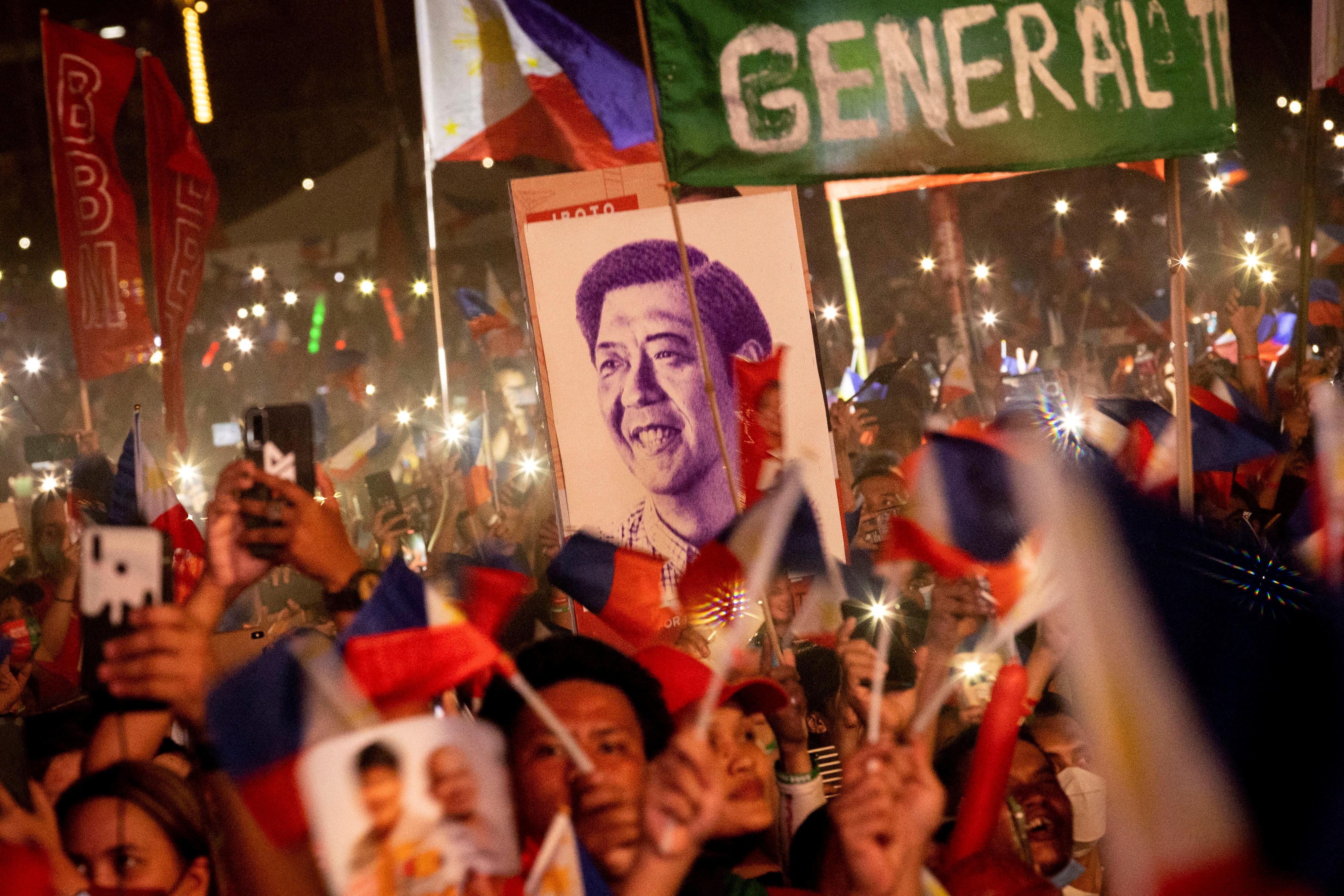May 08, 2022
Is the Philippines ready for Marcos 2.0?
Filipinos go to the polls Monday to vote in perhaps the most consequential and polarizing presidential election in recent memory. The clear frontrunner is Ferdinand Marcos Jr., the son and namesake of the late dictator. Marcos is leading the polls by a 30-point margin over Vice President Leni Robredo, who has campaigned on a message of good governance to contrast with the kleptocracy associated with the 21-year rule of the senior Marcos. Despite her long odds, Robredo supporters hope that their candidate's late surge in popularity and possibly lower-than-expected turnout could turn the tide in their favor. Marcos, meanwhile, is confident of a victory that'll return his family to Malacañang Palace 36 years after his dad and shoe-loving mom Imelda were chased out of power and into exile in Hawaii. His election would be yet another triumph for political dynasties, which have tightened their long-held grip on Philippine politics in recent years (Marcos' running mate for VP is none other than the daughter of outgoing President Rodrigo Duterte). Though his victory seems inevitable, will Marcos' many critics accept the result?
Another ban by the Taliban
On Saturday, the Taliban issued yet another decree in contravention of their promise to protect women’s rights in Afghanistan. The detailed order told women they should only leave their homes when necessary and be fully veiled in a hijab in public (they recommend the Afghan burqa as the "best hijab"). Failure to comply will result in male relatives being prosecuted, fined, imprisoned, or sacked from their jobs. The decree is consistent with the Taliban’s rollback of women's rights since they swept back to power in August 2021. So far, they've banned women from attending secondary school, protesting, traveling alone, and working in any sectors other than health and education. While those familiar with life under the previous Taliban regime (1996-2001) will not find these measures out of line with the Taliban's worldview, such policies will only further isolate the regime internationally. Not a single country — not even longtime supporter Pakistan — recognizes the Taliban as the legitimate government of Afghanistan, a country that's failing to contain a humanitarian crisis, battling an economic free-fall, and struggling with attacks from the even more radical ISIS-K.
More For You
- YouTube
Singapore was one of globalization’s biggest beneficiaries. Ian Bremmer looks at whether the city-state can survive in a world where the economic order that drove Singapore's rapid rise starts to unravel.
Most Popular
Think you know what's going on around the world? Here's your chance to prove it.
Igmel Tamayo carries charcoal to sell on the side of a road for use as cooking fuel in homes, after US President Donald Trump vowed to stop Venezuelan oil and money from reaching the island as Cubans brace for worsening fuel shortages amid regular power outages, on the outskirts of Havana, Cuba, on January 12, 2026.
REUTERS/Norlys Perez
Xi Jinping has spent three years gutting his own military leadership. Five of the seven members of the Central Military Commission – China's supreme military authority – have been purged since 2023, all of whom were handpicked by Xi himself back in 2022.
© 2025 GZERO Media. All Rights Reserved | A Eurasia Group media company.
